Mum’s plea: ‘I’m dying but $7.70 could save my kids’
Amelia Ramsay has battled all her life – and now she may have to watch her kids go through the same thing. But $7.70 could transform their lives.
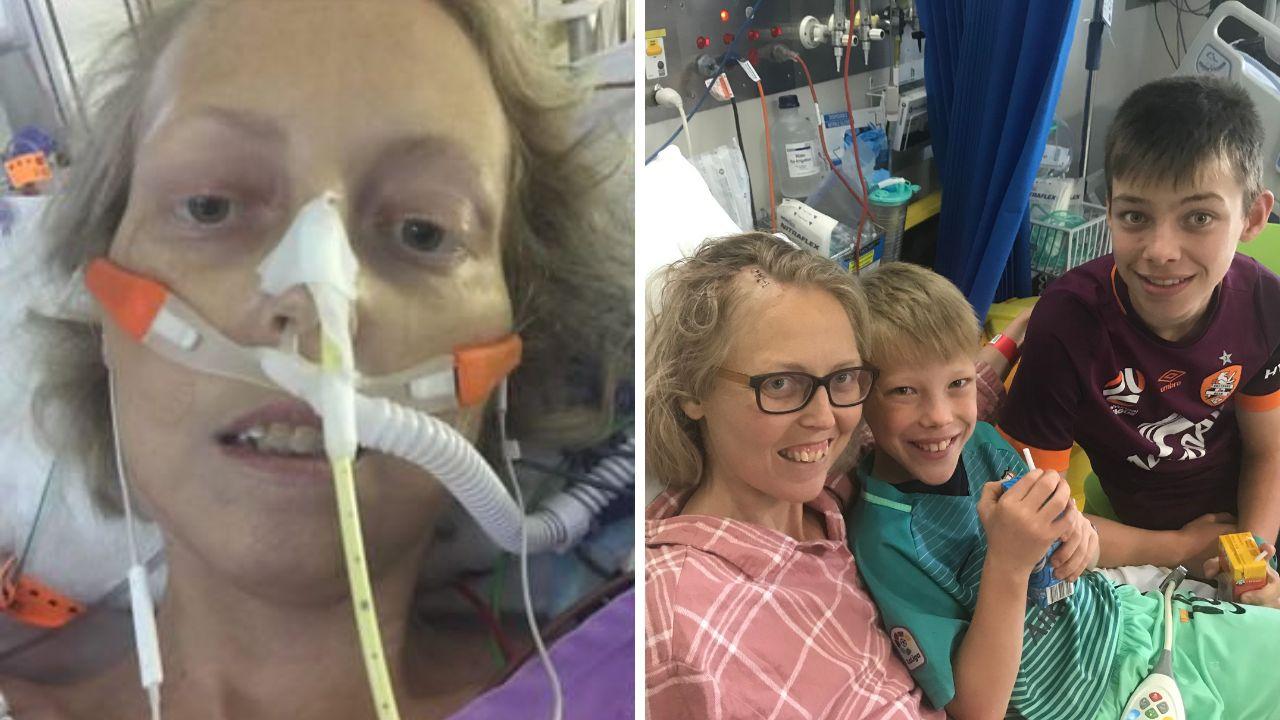
A Brisbane mum is pleading for a lifesaving drug to be made available on the Pharmaceutical Benefits Scheme (PBS) so her kids have a chance of fighting the disease that is slowly killing her.
“I’ve had nearly all the surgeries you can have,” says the mother-of-two, who averages about “two major ones per year” and was just eight when she had her first surgery.
Amelia Ramsay, 39, has a rare genetic disease known as Von Hippel-Lindau Syndrome (VHL), in which tumours and cysts grow in various parts of the body. These can include the brain, spinal cord, retinas, ears, pancreas, adrenal glands, kidneys and more.
She’s endured eight brain surgeries, seven spinal cord operations, and a kidney transplant just three weeks after her older sister Melinda died of the same disease.
Yet, despite the ongoing medical trauma Amelia has experienced, nothing scares her more than the fact that her two sons are now staring down the same fate.
Xavier, 17, and Leo, 11, have both had retinal angiomas treated with laser surgery. Xavier also has a tumour on each kidney.
“I can’t imagine watching them wake up from brain surgery. I just can’t. It terrifies me,” she says.
Sign this petition to make treatment for VHL available on the PBS.
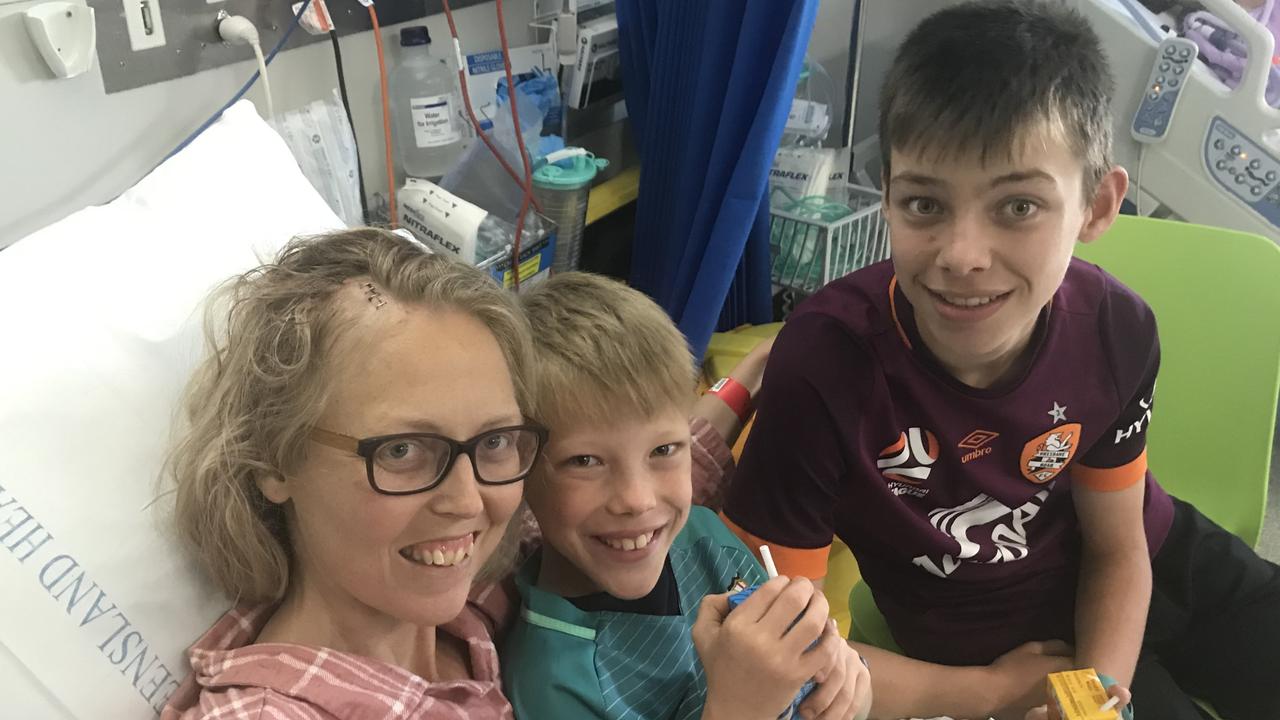
“When I get put to sleep to have brain surgery, it’s not even the feeling of: I don’t know if I’m gonna wake up. It’s, ‘I don’t know how I’m going to wake up. Who am I going to be after brain surgery? What is going to be affected this time? … I don’t want that for them,” Amelia says.
Nearly everyone in her family has the disease. Amelia’s grandmother died of a brain tumour at 34, most likely caused by undiagnosed VHL. It was passed down to Amelia’s mum and then her three sisters. Heartbreakingly, both her mother and older sister have died of the disease.
Amelia’s first pregnancy was a surprise, which meant there was no chance to test for the gene inheritance, while CVS testing on her second pregnancy came back inconclusive, leading to both boys only being diagnosed with VHL after birth.
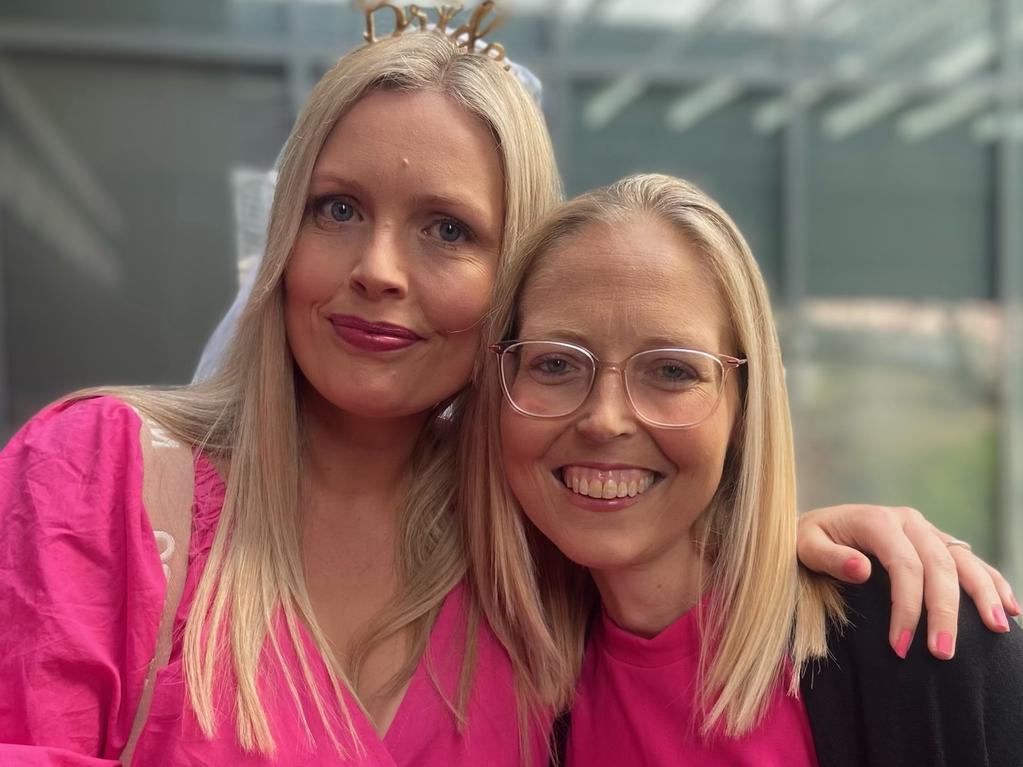
Associate Professor Kathy Tucker is a geneticist, who specialises in rare hereditary cancers. She’s been caring for VHL patients since 1993.
“It’s a disease that not only affects one person in the family, it often affects multiple people.” she says, explaining that there is a “50/50 chance” the children of VHL patients will also inherit it.
Amelia has had so many surgeries that she says it can be hard to recall them all.
“They have all taken a massive toll on my body and with each one, I become weaker and more tired,” she says.
It doesn’t look like Amelia will get a break from future surgery, either, with her scans showing “innumerable lesions.”
“I am absolutely exhausted. I am so weak. Life really is an everyday struggle.”
Hope is on the horizon for Amelia’s kids
For the first time in her family’s three-generation battle with VHL however, hope is on the horizon.
A new treatment called WELIREG (marketed as Belzutifan), which has been proven to shrink certain VHL tumours, is currently up for consideration to be added to the PBS.
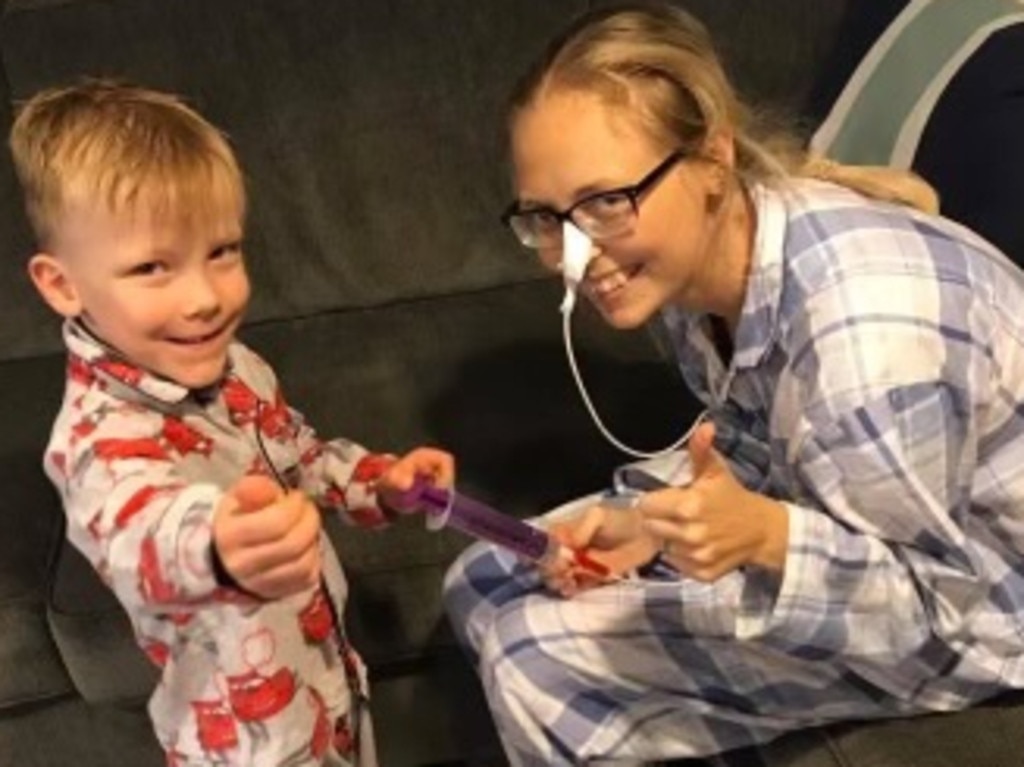
Dr Tucker says the drug is life changing for people with Von-Hippel Lindau.
“Depending on the different cancer, or tumour types, there is between a 50 and 90 per cent chance of [Belzutifan] decreasing the tumours,” she says. “So, that’s not just stopping the tumours getting bigger, but actually making them shrink.
“This is the most exciting thing that’s happened for me in my career in terms of being able to turn around the lives of people rather than just screen for things that are going to get worse. Belzutifan has the potential to change outcomes.”
Up until now, surgery has been the only option to fight VHL, but now with a non-surgical treatment on offer, VHL patients will have options. The catch, however, is that the drug currently costs patients $12,000 per month to access.
Should the Government decide to add the drug to the PBS, it could be available for as little as $7.70 per month to patients, but Amelia and her family face an agonising wait, with no guarantee of this happening.
A drug that could rewrite a family’s future
“If Belzutifan can be approved by PBAC and placed on the PBS that would be wonderful,” says Meredith Cummins, CEO of NeuroEndocrine Cancer Australia (NECA).
“It would be so much more beneficial if this approval could be fast tracked to allow patients who are rapidly deteriorating to have some hope, and enjoy the time they have. The approval also will then provide the children of patients who also have the VHL disorder with a better quality of life.”
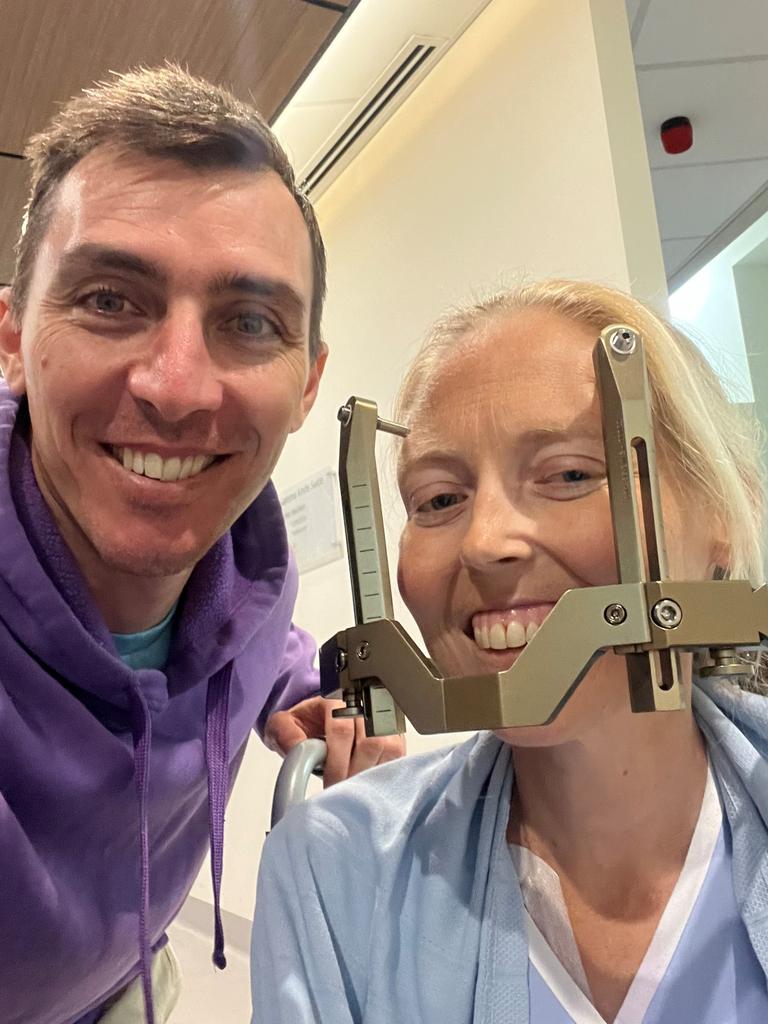
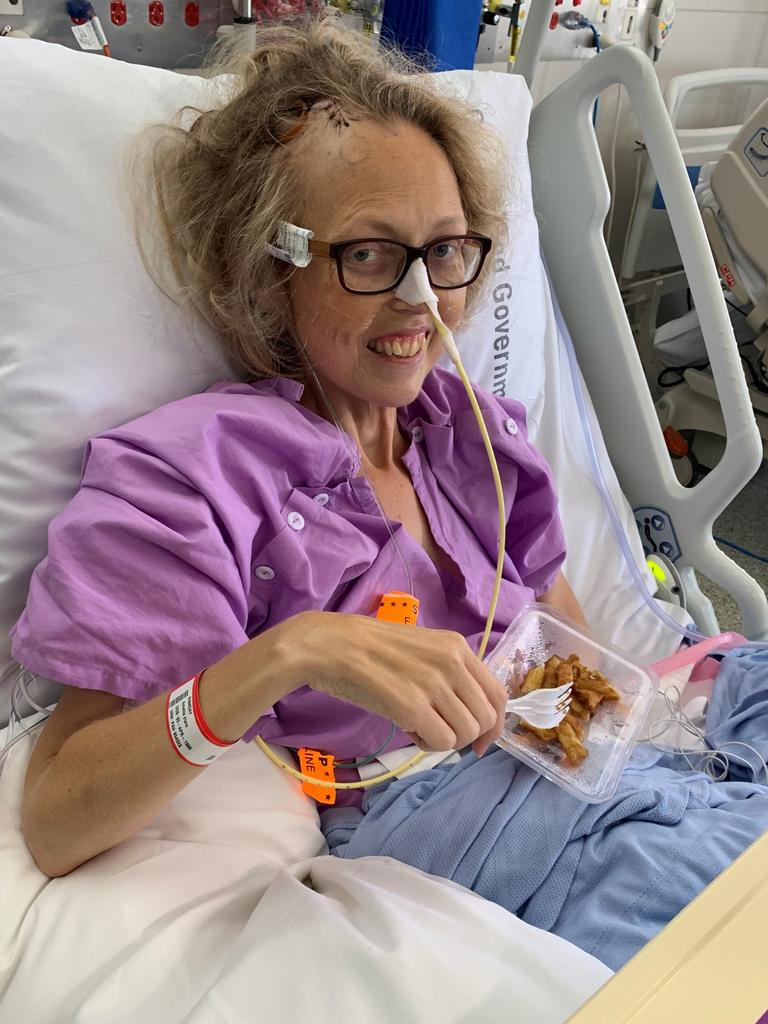
For Amelia, quality of life is something she is laser-focused on, believing that even though it may be too late for the drug to help with her condition, it could change everything for her children.
“I am not sure if I am an eligible person for Belzutifan as I have a kidney transplant,” she says.
“Had I been able to have Belzutifan before losing my kidneys, I may have been eligible.
“I hope Belzutifan will ensure my sons, niece and nephew and sister as well as all other VHL patients, do not have to be forced into so many surgeries because that is the only option for treatment.
“My greatest fear with VHL is that I will miss out on my children’s important milestones,” says Amelia.
“I want to see them succeed, finish school, find a career that makes them happy. Find love and create their own beautiful families.”
Amelia says that if Belzutifan does not go on the PBS, bringing the price down to an accessible point for patients, it is very likely her eldest son Xavier will require a transplant and/or dialysis. “The same can be said for my younger sister,” she adds.
“The way VHL has manifested in our family makes us think that everyone in our family would be very likely to have brain and spinal surgery, as well as pancreatic neuroendocrine tumours. This will make finishing school, finding full time employment and living a productive, meaningful life, very difficult.”
“Life is short, it shouldn’t be spent in recovery from surgery after surgery.”
Add your voice to the campaign to get Belzutifan added to the Pharmaceutical Benefits Scheme (PBS) to reduce its price to as little as $7.70 per month for patients in desperate need. Please take 30 seconds to sign this petition.
Dr Tucker would like to disclose that she’s authored educational material about Belzutifan for MSD Australia.





